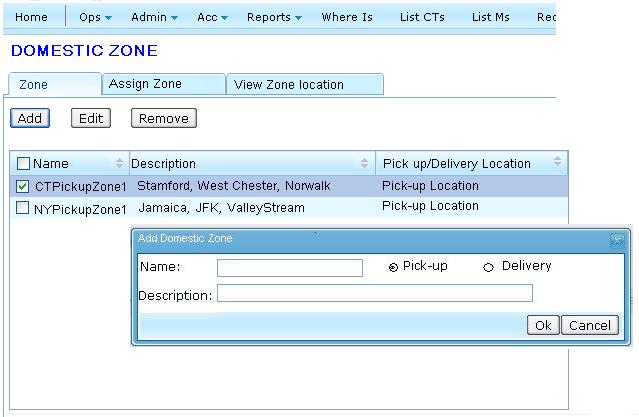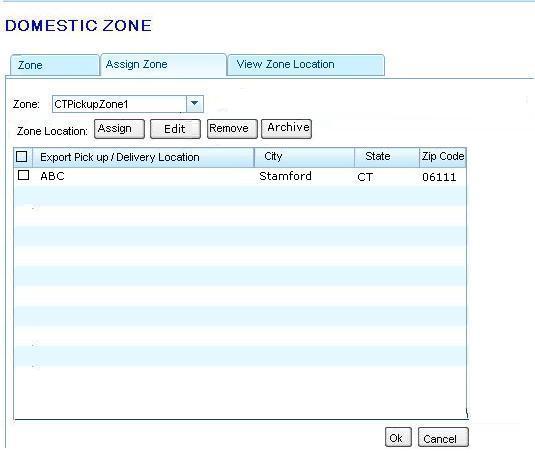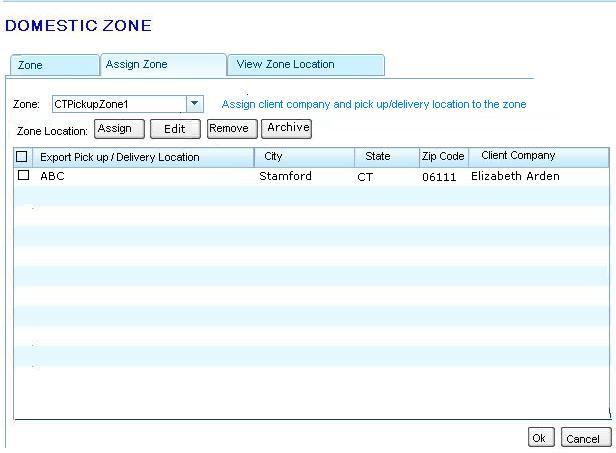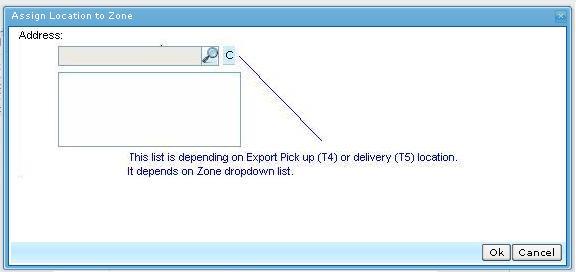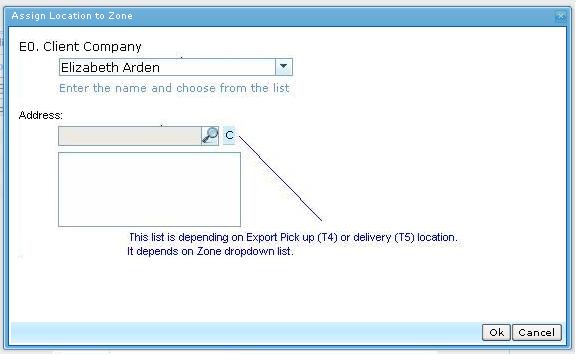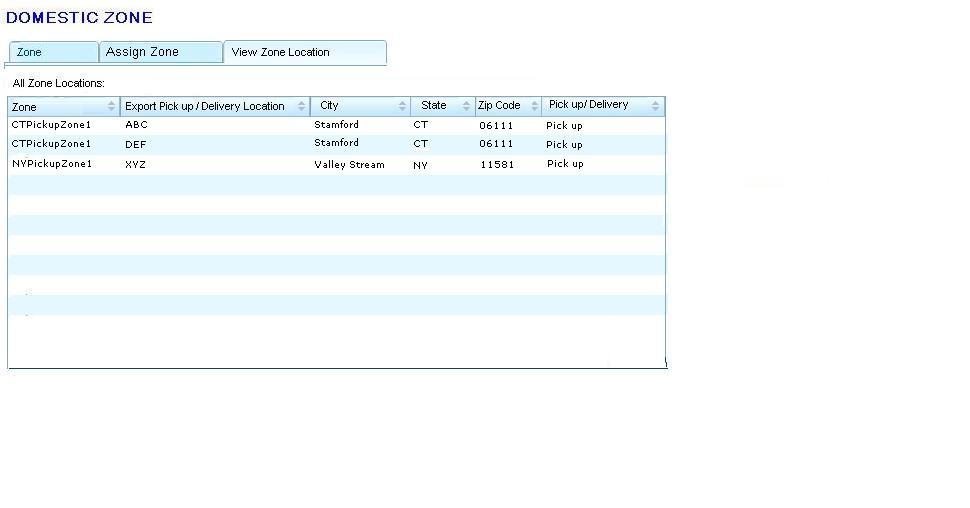Zoning
From UG
(Difference between revisions)
(→Figure 2. Assign Location to zone) |
(→Figure 3. Assign / Edit Zone Pop-up) |
||
| Line 32: | Line 32: | ||
=== Figure 3. Assign / Edit Zone Pop-up === | === Figure 3. Assign / Edit Zone Pop-up === | ||
| - | [[]] | + | [[File:AssignLocationToZonePopUp1.JPG]] |
| + | |||
[[File:AssignLocationToZonePopUp.JPG]] | [[File:AssignLocationToZonePopUp.JPG]] | ||
=== Figure 4. View Zone Location === | === Figure 4. View Zone Location === | ||
[[File:ViewZoneLocations.JPG]] | [[File:ViewZoneLocations.JPG]] | ||
Revision as of 13:41, 30 April 2010
Contents |
Zoning
One Client vs many (consolidation)
- option 1) One Zone can contain only locations for one client
- option 2) One Zone can contain locations for multiple clients
- consolidating freight from multiple companies (this would optimize loads using economy of scale)
Zone size
Max radius or max path should be defined. If locations are too spread out they can not be considered in one zone.
Static zone vs dynamic
Assume you have a uniform distribution of pick up locations stretching over a long distance along same road. Then it make sense to consider "dynamic" zones - they would form based on current state of freight located in each location.
